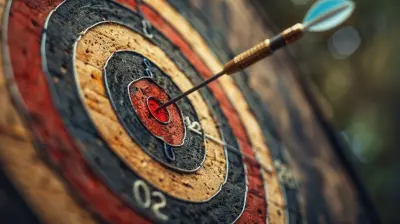The Unwritten Rules: Acts of Sportsmanship That Transcend the Game
30 July 2025
Sports aren’t just about winning. Sure, lifting a championship trophy or breaking a record feels incredible, but there’s something even more powerful woven into the fabric of athletics—sportsmanship. It’s not written in rulebooks or shouted from the sidelines, but it shows up in those quiet, defining moments that stick with you long after the final whistle blows.
Welcome to the unwritten rules of the game—the small, powerful acts of respect, empathy, and fairness that remind us that sports can be about something greater than just the scoreboard.
What Are the “Unwritten Rules”?
Let’s face it—every sport comes with a set of official guidelines. You’ve got your fouls, offsides, timeouts, penalties—you name it. But then there’s that other playbook, the invisible one, passed down by teammates, coaches, and veterans. It’s not about what you can do; it’s about what you should do.These unwritten rules represent the soul of sportsmanship. They guide behavior when no referees are watching, and they dictate respect between opponents, teammates, and even fans. It’s less about the “how” and more about the “why.”
1. Helping an Injured Opponent
You’ve probably seen it. A player goes down hard, and instead of celebrating, their opponent rushes to check on them. In that moment, competition takes a backseat to compassion.Think about it—when a tennis player sprains an ankle mid-game, their rival doesn't just serve an ace for an easy win. More often than not, they walk over, offer support, and make sure help is on the way.
It’s those seconds of humanity that show us what real sportsmanship looks like.
2. Returning the Favor: Fair Play Gestures
In soccer, there’s a beautiful unwritten rule. If someone’s down and the ref hasn’t blown the whistle, players often kick the ball out of bounds so the injured can get help. What’s cooler? The other team usually throws it back once play resumes.It’s like a silent handshake between warriors—"I respect the spirit of the game, even if we’re not on the same team."
These moments echo the idea that fairness trumps advantage. And honestly, that makes the game more beautiful to watch.
3. Admitting a Fault
Picture this: A volleyball player accidentally touches the net, but the ref didn’t catch it. What should they do? Most would stay quiet. But some own up to it.That takes guts, doesn’t it? Especially with the game on the line. But admitting a mistake, even when no one’s watching, is the kind of integrity that makes a real athlete stand out.
And hey, even if you lose the point, you win the respect of everyone who saw what you did.
4. Holding Back for the Greater Good
Ever notice how in youth sports, a dominating team might ease up when they’re miles ahead? They stop pressing, avoid running up the score, and even let others take a shot.This isn’t about going easy—it’s about leveling the playing field and respecting your opponent's effort.
And let's be real, no one likes a showboat. Humility in victory? That’s next-level sportsmanship.
5. Celebrating Others’ Achievements
This one hits differently. Think of Olympic runners who help each other cross the finish line. Or athletes who applaud their rivals after a record-breaking performance.That’s grace in defeat and class in victory.
Cheering for someone else doesn’t make your light shine any dimmer. In fact, it lights up the whole stadium.
6. Ditching the Trash Talk
Look, we all love a little friendly banter. But there’s a fine line between hyping yourself up and tearing someone down.The greats? They let their game do the talking.
Respecting your opponent doesn’t make you weak—it proves you’re secure enough in your own skills that you don’t need to throw jabs. It’s the difference between confidence and cockiness.
7. Giving Credit Where It's Due
Ever seen a quarterback praise their offensive line during a post-game interview? Or a star athlete name every teammate who helped win a match?That’s gold.
Because let’s be honest—no one wins alone. Acknowledging the role others play in your success is a humble nod to the team effort, and it reflects maturity that fans and fellow athletes admire.
8. Teaching Instead of Dominating
Veterans play a crucial role in shaping young talent. But the great mentors do more than just flash their skills—they pass them on.Sharing tips, encouraging rookies, giving constructive feedback—it’s part of the nurturing side of sportsmanship that's often overshadowed by highlight reels.
Helping someone else improve doesn’t take away from your greatness. It multiplies it.
9. Showing Up With Grace (Even When You Lose)
Losing hurts. It stings. But what separates the champions from the rest is how they handle defeat.Do they blame the ref? Complain about the conditions? Or do they shake hands, congratulate the winner, and vow to come back stronger?
Accepting loss with dignity shows emotional toughness—and it earns admiration, even from your critics.
10. The Fans' Role in Sportsmanship
Yup, fans are part of this too. Respecting the game doesn’t stop at the edge of the field.Booing injured players, mocking mistakes, or throwing stuff on the field? Big no-no.
But applauding a rival team's great play? Standing up for a ref’s tough call? That’s where fans become part of the game’s higher calling.
Sportsmanship is contagious, and it spreads through the stands just as much as it does on the field.
Sportsmanship Moments That Made Headlines
Sometimes, acts of sportsmanship capture worldwide attention. Here are a few unforgettable ones:- Jack Nicklaus conceding a putt in the 1969 Ryder Cup, leading the match to end in a tie. That one gesture became legendary.
- Iván Fernández Anaya, a Spanish runner who pushed his opponent, Kenyan athlete Abel Mutai, to cross the finish line after Mutai stopped short, thinking he’d already won.
- Softball players carrying an injured opponent, as Washington's Sara Tucholsky hit her first home run but tore her ACL rounding first base. Members of the opposing team carried her around the bases.
These aren’t just feel-good stories—they're snapshots of human decency at its finest.
Why Sportsmanship Still Matters in a Win-Obsessed World
We live in a highlight-hungry, stat-obsessed culture. Everything from fantasy leagues to endorsement deals centers around performance, performance, performance.But sportsmanship pulls us back to our roots. It reminds us why we started playing in the first place—for the love of the game, the camaraderie, and the life lessons tucked into every match, race, or inning.
When players embody respect, fairness, and empathy, they don't just play the game—they elevate it.
Teaching the Next Generation
If we want to keep the spirit of these unwritten rules alive, it starts with the youth.- Coaches must model integrity.
- Parents should cheer with perspective.
- Leagues should recognize character, not just scoring stats.
After all, the values kids learn on the field often shape how they behave off it. Sports can be the gateway to becoming better teammates in life—whether that’s in relationships, careers, or communities.
Final Whistle: It’s Bigger Than the Game
In the end, these unwritten rules reveal a truth that’s easy to forget in our hyper-competitive age: Character counts. Sportsmanship is about leaving your ego at the door, honoring your opponents, and representing the best version of yourself—even when no one’s watching.Because at the heart of sports lies a simple idea—respect.
Not just for the rules, but for the people who play by them.
all images in this post were generated using AI tools
Category:
Sportsmanship AwardsAuthor:

Preston Wilkins
Discussion
rate this article
1 comments
Thea Rocha
This article highlights the importance of sportsmanship, showcasing how acts of kindness and respect during competition can profoundly impact players, fans, and the spirit of the game.
August 19, 2025 at 4:11 AM

Preston Wilkins
Thank you! I'm glad you found the article emphasizes the significant role of sportsmanship in enriching the game for everyone involved.


